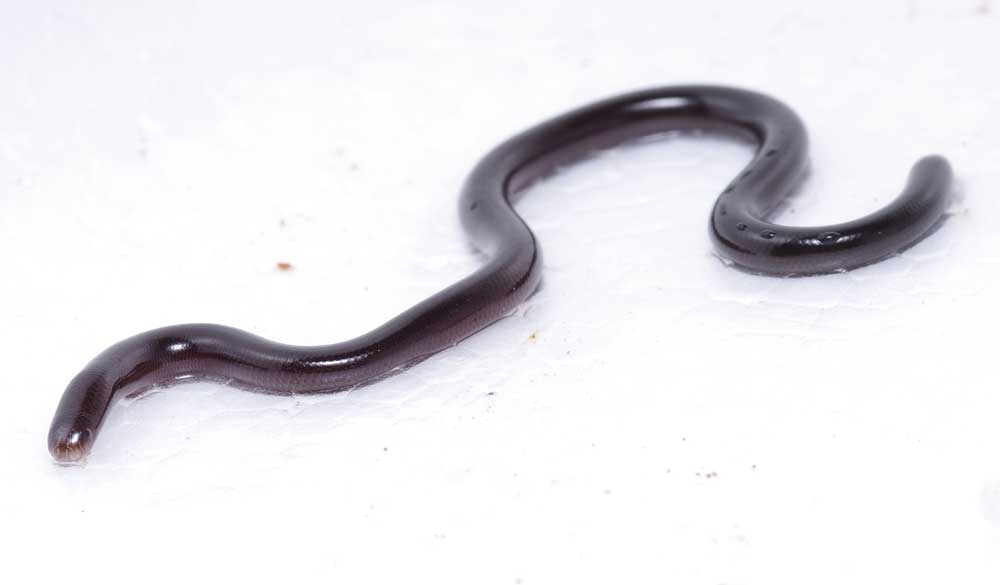The Brahminy blind snake (Indotyphlops braminus) is one of the most popular snakes in the herp world due largely to the fact that it is one of the smallest snakes known to science.
The Brahminy blind snake (Indotyphlops braminus) is one of the most popular snakes in the herp world due largely to the fact that it is one of the smallest snakes known to science. It also has three sets of chromosomes instead of two and can reproduce via parthenogenesis. One of the most unique aspects of this species, which was recently revealed in a new study, is the fact that it can actively repair its own DNA that prevents mutations that negatively affect the species. And with this revelation, scientists studying the species say this could unlock issues with the human condition such as Down Syndrome.
“This DNA repair and replication activity supports a fascinating mechanism called premeiotic endoreplication, a process through which the snake duplicates its chromosomes before dividing them, sidestepping the need for the typical pairing of chromosomes seen in sexual reproduction,” Matthew Fujita, a professor of biology at the University of Texas at Arlington and a co-author on the paper said in a news release put out by the university. Fujita worked with researchers from China and Myanmar. “This mechanism allows the snake to produce offspring that are exact genetic clones of itself.”
However, Fujita and his team note that the Brahminy blind snake, also known as the flowerpot snake, evolves slowly and steadily and because of this, limits the “accumulation of harmful mutations.”
The researchers also looked at genetic variations across different flowerpot snake populations and believe that chromosome exchanges between the sub genomes balance the genetic diversity of these snakes, which leads to stability that maintains just enough genetic variation to ensure health populations that are limited in their accumulation of mutations that negatively affect the snakes. This could help in the study of human conditions such as Down syndrome.
University of Texas at Arlington Study Looks At Snake Venom Gene Evolution
“The study also revealed something unexpected—many of the flowerpot snake’s immune-related and sexually selected genes, such as those involved in sperm development, have lost their functions,” Fujita said in the news release. “This finding provides key insights into how reproduction without a mate works in reptiles, but it also reshapes some of our long-held views about the limitations of asexual species. Rather than being an evolutionary ‘dead end’ as researchers have thought, the flowerpot snake shows how nature can innovate and adapt in extraordinary ways.”
The complete paper, “Genomic insights into evolution of parthenogenesis and triploidy in the flowerpot snake” can be read on the Science Advances website.



